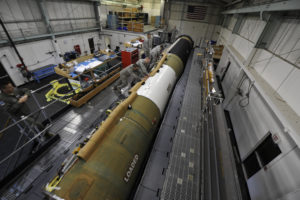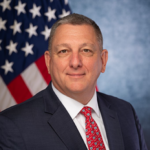
The United States and Russia were each deploying fewer strategic nuclear weapons as of March 1 than they did six months earlier, according to the Department of State's latest data on the bilateral New START nuclear treaty. Since the last official State-published tally in September 2019, Russia cut more strategic warheads from its arsenal than the U.S.: 100, compared with three. That left Moscow with 1,326 weapons on deployed long-range missiles and strategic bombers, slightly under Washington's count of 1,373.…

 By
By 











